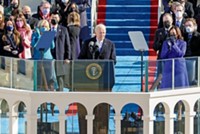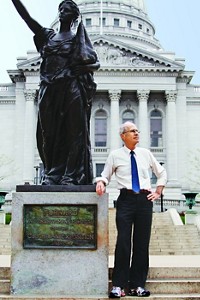Advertisement
Grab your lab coat. Let's get started
Welcome!
Welcome!
Create an account below to get 6 C&EN articles per month, receive newsletters and more - all free.
It seems this is your first time logging in online. Please enter the following information to continue.
As an ACS member you automatically get access to this site. All we need is few more details to create your reading experience.
Not you? Sign in with a different account.
Not you? Sign in with a different account.
ERROR 1
ERROR 1
ERROR 2
ERROR 2
ERROR 2
ERROR 2
ERROR 2
Password and Confirm password must match.
If you have an ACS member number, please enter it here so we can link this account to your membership. (optional)
ERROR 2
ACS values your privacy. By submitting your information, you are gaining access to C&EN and subscribing to our weekly newsletter. We use the information you provide to make your reading experience better, and we will never sell your data to third party members.
Policy
Wisconsin Recall Candidate Is A Card-Carrying Chemist
Elections: Environmentalist professor-turned-politician runs low-budget gubernatorial campaign
by Carmen Drahl
May 2, 2012
On May 8, Wisconsin voters will choose the Democrat who will take on their state’s polarizing Republican governor Scott Walker in a June 5 recall election. One of their options, Douglas J. La Follette, holds a doctorate in organic chemistry.
The recall vote is the climax of a standoff that gripped Wisconsin and thrust the state into the national spotlight last year when Walker stripped unions of their collective bargaining rights (C&EN, Feb. 28, 2011, page 9). Even though Democrats are united against Walker, polls suggest they’ve failed to unite behind a candidate of their own.
La Follette, who has been Wisconsin’s secretary of state since 1982, trails a pair of Democratic front-runners by double digits. But he tells C&EN he’s pressing on with his campaign. He’s styled himself as a grassroots candidate on a shoestring budget. The environment figures prominently in his platform. “The whole environmental movement has gone through cycles,” he says. “Right now we’re in a backlash period, and our problems are getting worse.”
It was his concern about the environment, along with his disagreement with the Vietnam War, that pulled La Follette, 71, from chemistry into politics. Until he served a term in the Wisconsin state Senate from 1972–74, he was an assistant professor at the University of Wisconsin, Parkside, where he originated a course on environmental science. He was a Wisconsin organizer for the first Earth Day, which took place in 1970, and cofounded the environmental advocacy group now known as Clean Wisconsin. Before that, he earned his Ph.D. with Ronald Breslow at Columbia University.

Those chemistry credentials are complemented by an enviable political pedigree—La Follette’s grandfather was a cousin of Wisconsin governor and Progressive political icon Robert “Fighting Bob” La Follette.
Fighting Bob, however, wouldn’t recognize the technological trappings of his relative’s campaign. It arguably traces back to the modern-day La Follette’s Facebook page, which last year saw nearly 3,000 friend requests when he used the power of his office to delay publishing Act 10, the bill that curtailed union rights. (Publication is required for a bill to become a new law in Wisconsin.)
Quirky YouTube ads, including one featuring a toy windup cow named Miss Forward after the Wisconsin state motto, serve to spread La Follette’s ideals, including his distaste for fund-raising through political action committees, or PACs.
“I think social media’s the only hope to rescue our democracy from Super PACs and big money,” La Follette says. He is concerned that issues such as workers’ rights and the environment have taken a backseat to fund-raising in coverage of the election. He hopes that by only accepting campaign contributions from individuals, he will send a message that politics can be done in a different way. “Maybe I’m on a fool’s errand, but I hope not,” he says.
“I think what happens in this election is going to have major national repercussions,” and it’s terrific to see a candidate with a Ph.D. in a basic science running for a prominent public office, says University of Wisconsin, Madison, chemist Samuel H. Gellman, who also earned his Ph.D. with Breslow but who has not met La Follette. “The divide between people who know about science in this country and people who don’t is widening, and the value that people put on basic science is declining, and that is to our peril.”




Join the conversation
Contact the reporter
Submit a Letter to the Editor for publication
Engage with us on Twitter